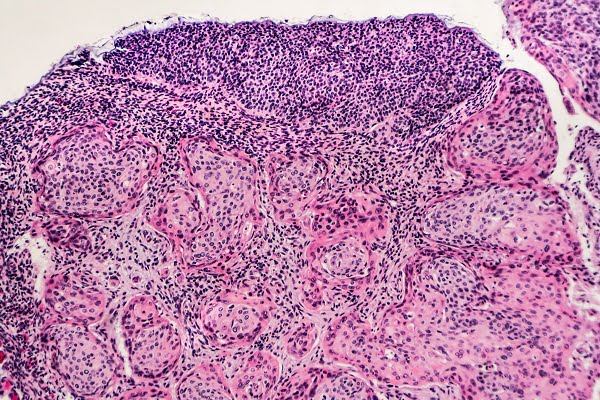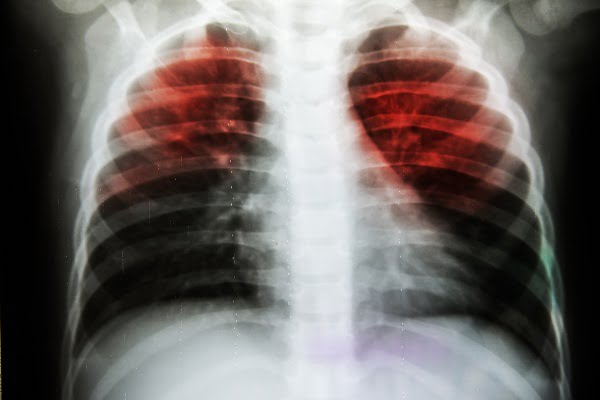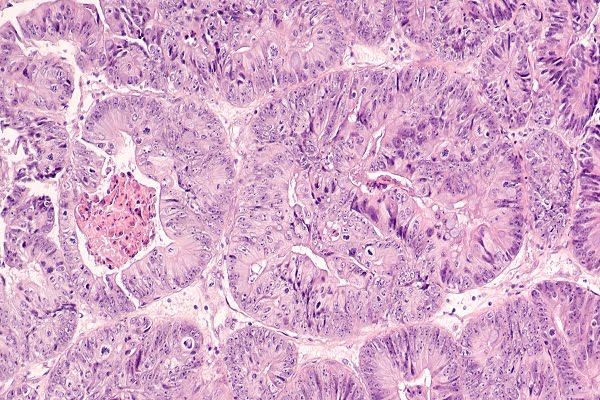Browsing: Cancers
 The page provides quick access to a list of common diseases, syndromes, health conditions, and other topics of health importance related to cancer. The list is organized alphabetically. Links are provided to respective diseases sections that serve as a comprehensive and ultimate guide about the disease or health condition.
The page provides quick access to a list of common diseases, syndromes, health conditions, and other topics of health importance related to cancer. The list is organized alphabetically. Links are provided to respective diseases sections that serve as a comprehensive and ultimate guide about the disease or health condition.
For normal growth and development of our body, cells continue to grow and divide to form new similar type of cells. If any cell starts dividing abnormally, it develops into a tumor which leads to cancer formation. Cancer can occur in any part of the body such as affecting the blood cells, bone, nerve, adrenal gland, ovaries etc.
There are several reasons that can turn a normal body cell to develop abnormally and become cancerous. Significant factors which can lead to various types of cancers are due to exposure of chemical or toxic compounds, ionizing radiation, certain pathogens and human genetics.
Cancer is among the leading causes of death worldwide. In 2012, about 14.1 million new cases and 8.2 million cancer-related deaths have been reported around the world. In women, breast cancer is most prevalent, whereas in men, prostate cancer is quite frequent. Lung cancer and colorectal cancer affect both men and women with high incidence rate.
There are over 200 different types of cancer. The most common type of cancers are breast cancer, lung and bronchus cancer, prostate cancer, colorectal cancer, skin cancer, bladder cancer, non-Hodgkin lymphoma, kidney and renal pelvis cancer, endometrial cancer, leukemia, pancreatic cancer, thyroid cancer and liver cancer.
The adrenal glands are two small glands that are located on top of each kidney. They’re part of your endocrine system that produces hormones. Adrenal glands produce hormones that are necessary for many vital functions. Adrenal cancer is a condition that occurs when abnormal cells develop in or travel to your adrenal glands.
Early Detection, Prevention, and Screening of Cervical Cancer
The most common type of cervical cancer begins with pre-cancerous changes. Till date, we do not know ways to stop this disease from starting or developing. The only way to prevent the disease from progressing is to find and treat pre-cancers before they become actual cervical cancers and to prevent the pre-cancers.
If your doctor suspects that you may have lung cancer based on the results of a screening test or because of the symptoms you might experience, he or she will ask for tests and exams to confirm its presence. Chest X-ray is often the first test your doctor will do if you experience symptoms.
Early diagnosis of lung cancer improves outlook and survival rates. It’s important to remain aware of the symptoms and undergo screenings as appropriate. This can improve outcomes in many lung cancer patients. Lung cancer generally does not have many early symptoms. In fact, many tumors in the lung never cause any symptoms.
According to the National Cancer Institute (NCI) data, bladder cancer is the fourth most common cancer in men and the eighth most common cancer in women. According to reports, 38,000 cases of the bladder cancer were diagnosed in men and 15,000 in women in the United States in 2003.
Cancer is not contagious in the way you get cold or flu or any other infectious disease or condition. Therefore, if you touch or kiss or do sex with someone, it cannot be passed. It’s okay to kiss or touch someone with bladder cancer. Doctors, in fact, recommend intimacy through touch.
Endometrial Cancer Classification: Types of Endometrial Cancer
Endometrial Cancer Classification Endometrial cancers may be formed from epithelial cells, mixed epithelial and mesenchymal tumours (carcinosarcomas), or mesenchymal tumours.…
Endometrial Cancer Metastasis to Lungs: Can Endometrial Cancer or Uterine Cancer Spread to Lungs?
Can endometrial cancer or uterine cancer spread to lungs? The lung is a common site for endometrial cancer metastasis. According…
What is metastatic endometrial cancer (stage 4 endometrial cancer)? Any cancer has the ability to spread regionally, to nearby lymph…
Terms and terminologies often used in endometrial cancer Abnormal Uterine Bleeding Bleeding from the uterus that differs in regularity, duration,…













